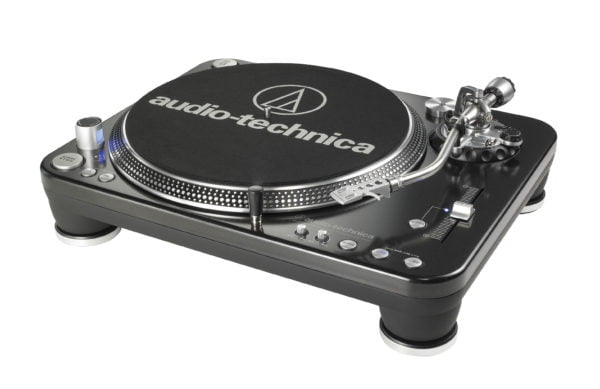Haggling for purchases is a great idea. Not only does it allow the obvious benefit of getting something for less than the original price, but it also forces you to decide how much you want something, and forces you out of your comfort zone, as for most people haggling is stressful and goes against our programming.
I’ve had both good luck and bad luck with haggling, and learned a lot from both experiences.
All this has become relevant for me, because I’ve identified a another relatively high-value item that I’m interested in purchasing:
A turntable.
I haven’t had a record player in years, and my old records (and some new ones) have been calling to me.
But prices on audio equipment are all over the place. On Amazon, you can spend $50 on a turntable or you can spend $4,000. (If you’re not on Amazon, you can spend upward of $650,000. I am not joking.)
My budget was certainly closer to $50 than $4,000, but I still wanted a quality product with a long shelf life.
Here’s what happened:
Table of Contents
The turntable
I don’t want to get into a big discussion about gear here, but I had decided on the Audio-Technica AT-LP1240-USB turntable.

It’s what I would call a good “pro-sumer” component, basically the nicest of its type that you could still find in your average Best Buy. It’s direct-drive, with a built-in phono preamp, is upgradeable, and is built like a tank. Also, it looks pretty, and doesn’t even bother going for a minimalist look (which I don’t like anyway).
I was all set to buy it new, when I noticed that a local audio place had a used model, good condition, going for about 30% off.
I went in, looked it over, and played a few tracks on it. It was unclear how well-used it was prior to my spying it, but it did at least come with all of the original gear.
The deal
But I wanted a deal.
This was a local shop, not a Best Buy, and I was keen to develop a relationship with them. And I believe that even a token level of price flexibility shows a good faith desire to keep a customer happy. I’m not talking about 50% off, just a willingness to be flexible.
So I decided to haggle. Here’s how I did it.
- I went in with cash. I had an envelope with my exact desired price. I also had some loose money not in that envelope, in case I had to add in some sweetener to make the deal happen.
- I carried the envelope so that anyone close enough to me (like a salesperson) would see it. I mean, I wasn’t acting like The Monopoly Man, but I still wanted it to be known that I was serious.
- Talking to the salesperson, I first asked what the price flexibility was on the unit. (Notice I didn’t ask it as a yes/no question.) The guy went back behind a curtain and asked someone, and came out, and said that there was no price flexibility.
- I frowned and said nothing. He filled the silence by saying it was a really good deal.
- I then got into some specifics, asking how much to change out the cartridge for a nicer one (which I wanted to do anyway). I was hoping that he would throw in the nicer one for the same price. I would totally have gone for that.
- Instead, he quoted me a price that was higher than if I would have bought both cartridges myself on Amazon. I frowned again.
- He went off to talk to some other customers and I wandered the store for a few minutes. Then I went back to him and asked if they had a cash discount. This seems like a easy win, as merchants routinely pay 2-3% extra for a card transaction over a cash transaction. When paid in cash, merchants make more money.
- But the salesperson wasn’t budging.
I was at a crossroads. I was getting nowhere. This felt just like when I tried to buy an acoustic guitar.
Except I had learned from that experience.
So I played my last card. And I asked for his.
- He gave me his card, and I wrote down my name, number, and my desire to buy that specific unit, and gave it to him. I said that if he was interested in a sale, to just give me a call.
- He said that no one would go for it. But I stared him down, and he said he’d pass my card on.
And with that, I thanked him and walked out.
…or no deal
I did not buy the turntable. I didn’t buy anything. In some ways, one could see the engagement as a total failure.
And yet, I feel elated. I feel like I prevailed over the salesperson. I had a target, and I didn’t hit it, and so I walked. I didn’t need the sale, and it showed. I wasn’t beholden to the salesperson’s terms.
And that is the best way to success in negotiations: you have to be willing to walk away. And do it.
My plan now is to go back in periodically and check on the unit, and maintain that I would be willing to purchase that right away, assuming they were willing to show any amount of price flexibility.
Is it possible that it will be sold? Of course. But that’s fine. I’ll find another deal, and it’ll be better.
So I’ve got to go a little longer before I can play my new vinyl remaster of My Bloody Valentine’s 1991 classic Loveless, but when I do, it’ll sound so much sweeter.
But enough about me. How would you handle a sale process like this? Would you have done anything differently?


